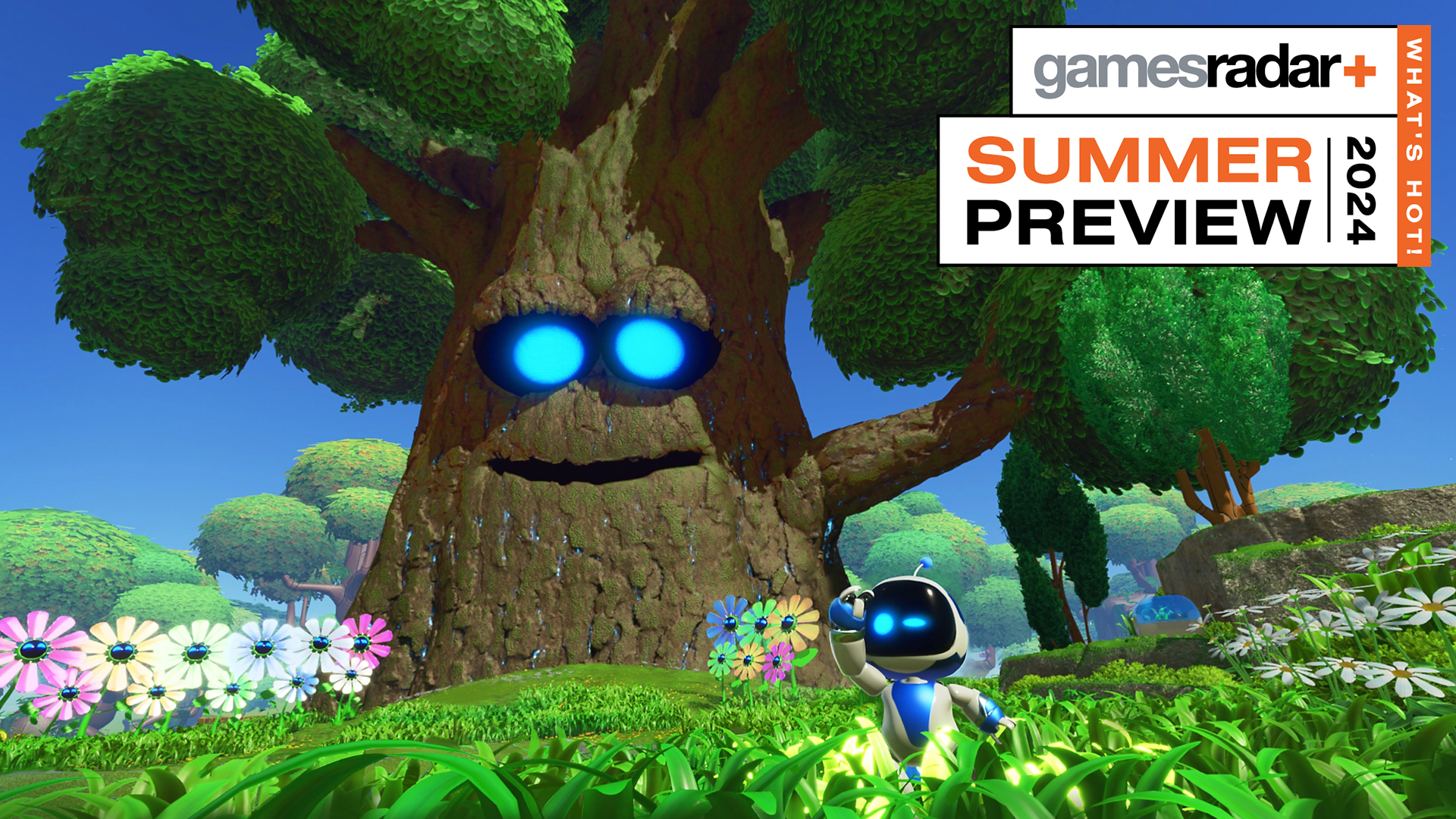
Astro Bot is nothing short of a delight. Through an action-packed 45-minute session at Summer Game Fest, I was dazzled by such an array of color, light, and experimentation that a game I was initially lukewarm about has swiftly become my most anticipated game to come out of this summer's show.
A relatively small slice of the galaxy-style map grants me access to a handful of worlds; a construction-themed world of half-built skyscrapers nestling among the clouds; a tropical paradise that somehow differentiated itself from another watery world, this one themed around a boss battle with a giant octopus; a time-bending challenge level requiring near-perfect platforming. While my demo locked me into a relatively limited path, it's already clear that Astro Bot is striving to make its array of worlds as diverse as possible.
Summer Games Preview
We're diving into the hottest upcoming games out of Summer Game Fest. To find all of our hands-on reports, visit GamesRadar's What's Hot 2024 hub.
And those worlds are beautiful. Graphical fidelity might not be Astro Bot's core aim, but it refuses to apologize for that, instead making you feel a part of its rich, cartoonish locations. Immediately, joyfully immersive, these are spaces you want to drink in every detail of, from the deformation of a giant balloon to the chaotic physics of a stack of spray paint to the simplicity of the sun glinting through a splash of water on the screen. Each opens with an excuse to flex on the viewer, to drink in the way that each world differs from the last and turn even the process of arriving in a level into a spectacle.
Blast off
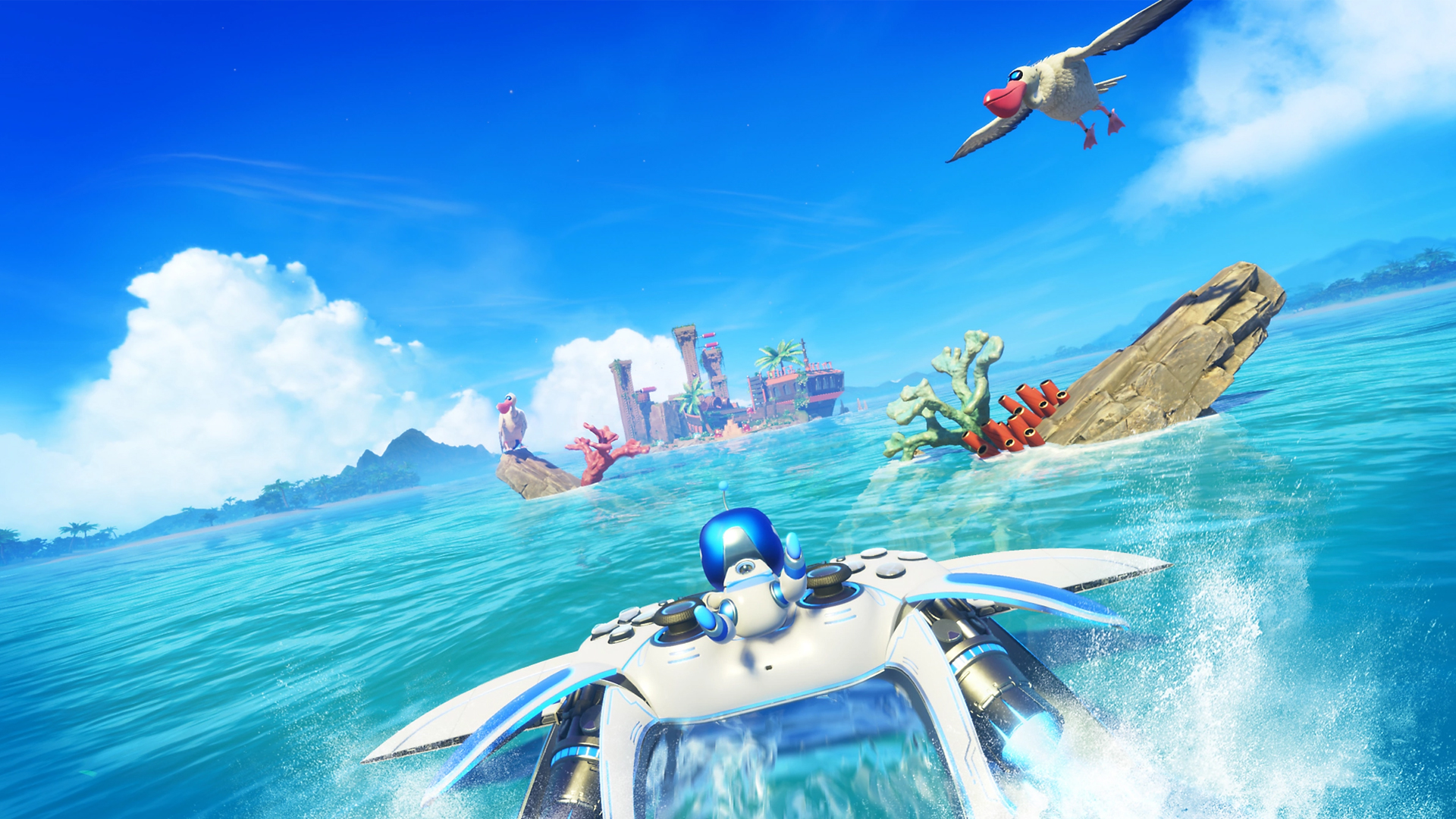
Each level starts with Astro gliding in for a bumpy landing on his DualSense-shaped ship. Even before you've started, the level shows off - in one, a herd of flamingos leads the way as you glide back and forth with the gyro controls. Once you've reached the ground, your tools are pretty similar to those that Astro's Playroom showed off when it was bundled in with the PS5. Astro jumps, punches, and pulls his way through much of each level, gathering coins, collectibles, and various lost Bots as he goes. Building on Playroom, it's excellent platforming - floaty enough to match the whimsy and lightheartedness of the game itself, but never too loose or woolly to make for a fair challenge.
In each level, however, you'll also get an extra power-up; sticky frog arms that let you swing through levels and snatch weapons away from different foes; a robotic dog whose boost blasts through obstacles to ping-pong you around each level; an inflating squid backpack that enhanced Astro's jump or helped soar through water puzzles. Each level feels just distinct enough to ensure that the formula doesn't get old over the dozens of worlds that make up Astro Bot, but these additions carve a gentle niche in each one that offers a genuinely unique touch.
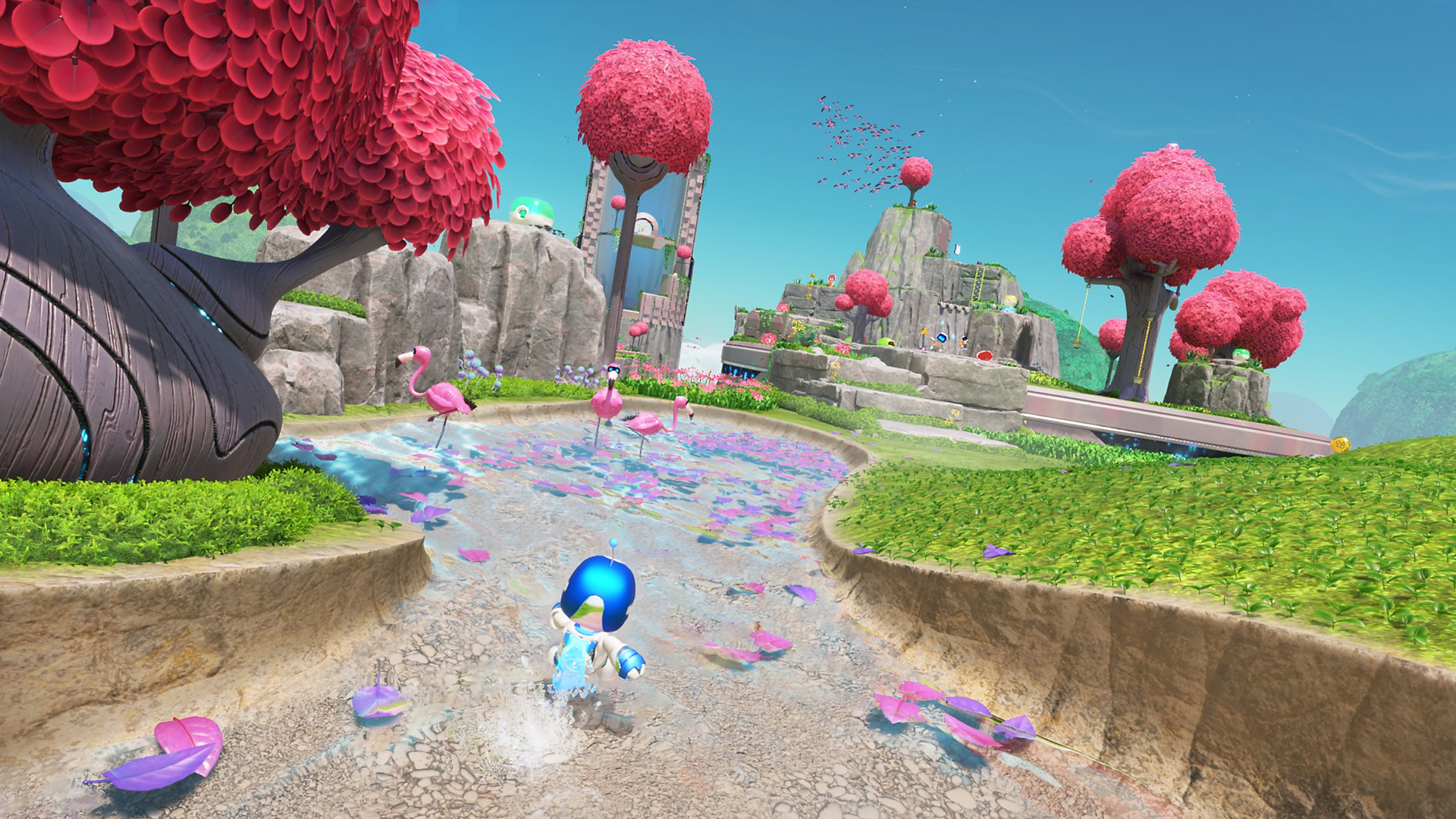
It's a formula that reminds me, more than anything, of Super Mario Wonder. As each Wonder Flower had the potential to turn a level entirely on its head, so too do Astro Bot's power-ups. Admittedly, Mario Wonder's changes were perhaps a little more extreme, but the same design philosophy exists here - Astro Bot wants to keep you guessing each time you enter a level, and is never afraid to do everything in its power to make that happen. There's a sense that it never wants to say no, it's trying to do something new at every turn. Every corner hides a potential new surprise, amounting to a collective 'yes, and' that manages to justify Astro's move from delightful tech demo to full-scale platformer.
Platform pro
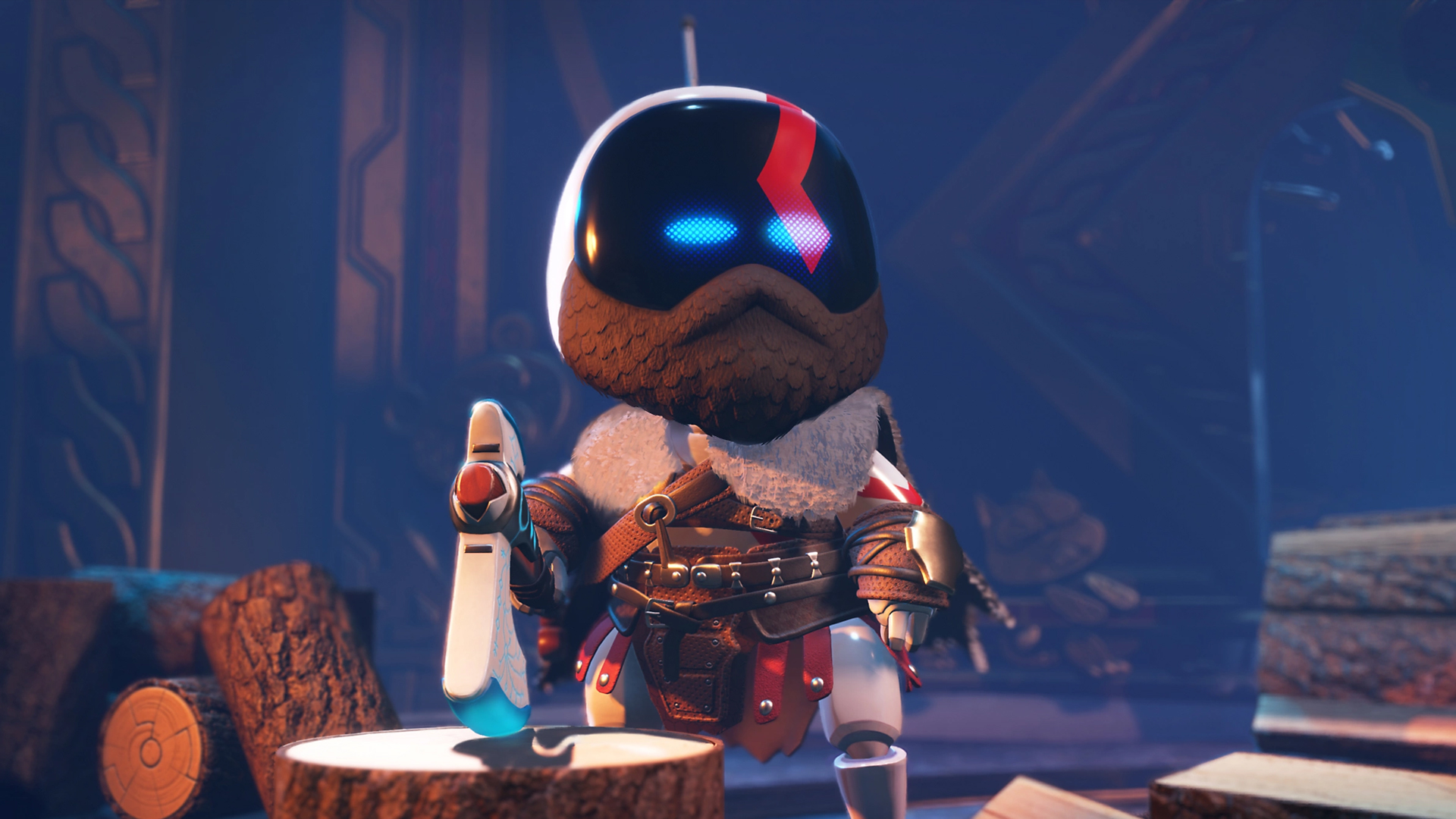
Part of that, of course, is ensuring there's enough to keep players busy, but that shouldn't prove a concern. Basic levels don't take long to clear, but exploring and collecting everything they have to offer is likely to require more than a couple of replays. There was an obvious main path to my demo, but plenty more was tantalizingly out of reach, and even now I can feel the ways that Asobi will be encouraging players to stay invested in the journey to completion.
Sign up to the GamesRadar+ Newsletter
Weekly digests, tales from the communities you love, and more
What really promises to keep core fans involved for substantially longer than Playroom, however, are the challenge worlds. Genuine platforming gauntlets, these are smaller, but much faster, more punishing levels. There aren't any checkpoints to keep you moving forward - a single mistake here sends you right back to the start, and those mistakes are easy to make. One level featured enemies swinging huge ball-and-chains, forcing you to skip rope with perfect timing as you jump across separate platforms. Another level was built around hourglasses that temporarily slowed the world to a crawl, offering Astro just enough time to clear an obstacle, assuming every input was almost perfect - step just a fraction too far, and you'd run out of time and be electrocuted or flung off into the abyss. A notable, but not unfair, step up from the traditional levels, I'm not too proud to say that these challenge worlds really slowed me down, but the thrill of completing them - in one case with just moments to spare before the end of my demo - is a big part of why I'm now entirely sold on Astro Bot.
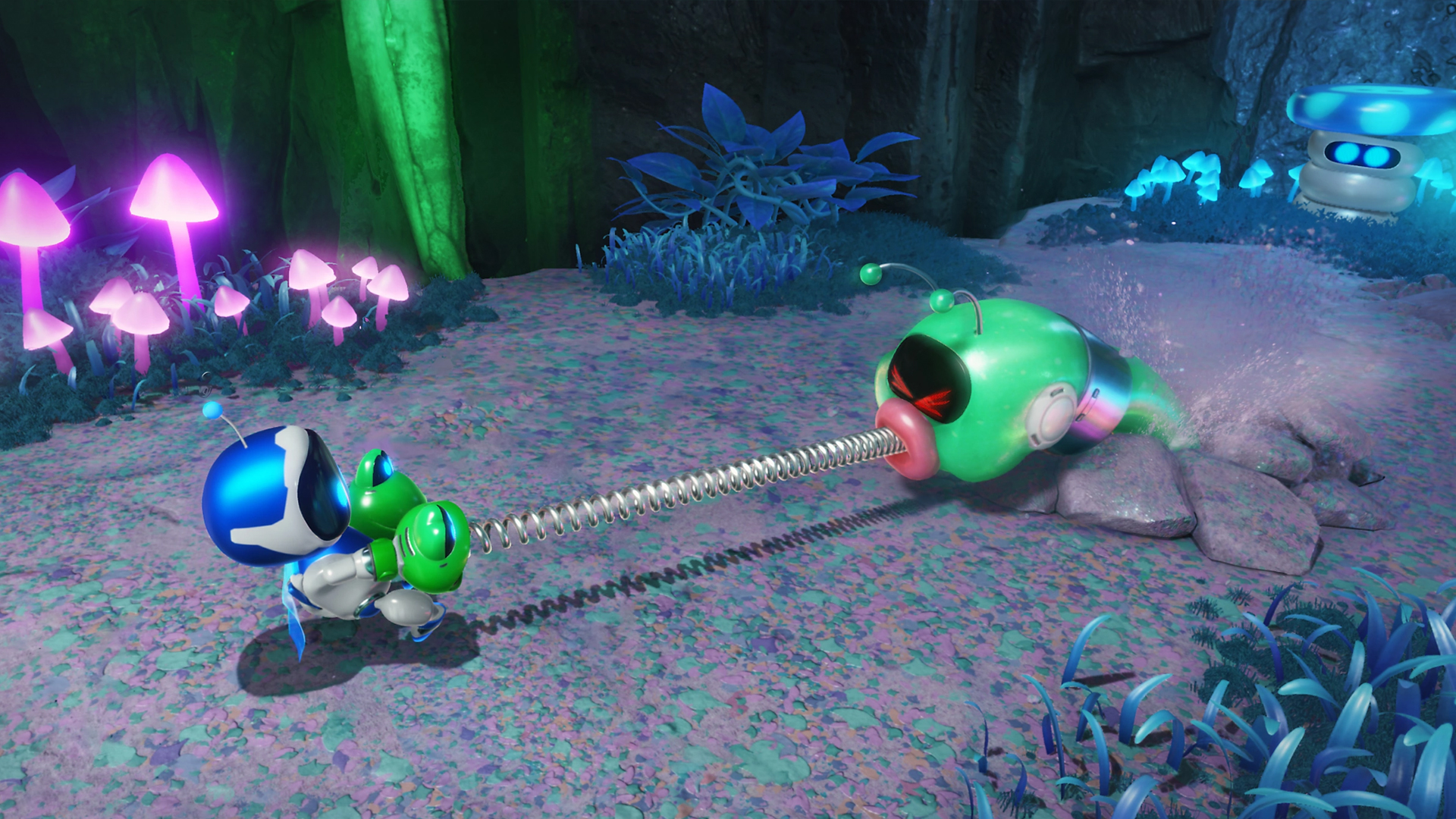
I was lukewarm on Astro's Playroom. Perhaps it was the feeling that it was a glorified tutorial, or perhaps it was the excitement to play a PS5 launch game, but I took Asobi's bundled-in offering as little more than a nice bonus with my new console. With that in mind, I wasn't sure quite what I'd make of Astro Bot, but what I found is a platformer friendly enough to be enjoyed by anyone, but with the same iterative joy that drew so much affection towards the latest Super Mario outing. Challenge levels aside, Astro Bot is such a joyful experience - from its beautiful worlds to its charming characters to its endlessly iterating levels - that it deserves to find itself high up in an emerging, experimental platforming pantheon.
You can learn more about Astro Bot and other PS5 exclusives in our round-up of all the upcoming PS5 games currently confirmed for 2024 and beynd.

I'm GamesRadar's news editor, working with the team to deliver breaking news from across the industry. I started my journalistic career while getting my degree in English Literature at the University of Warwick, where I also worked as Games Editor on the student newspaper, The Boar. Since then, I've run the news sections at PCGamesN and Kotaku UK, and also regularly contributed to PC Gamer. As you might be able to tell, PC is my platform of choice, so you can regularly find me playing League of Legends or Steam's latest indie hit.



